Actor Alec Baldwin and several crew members gathered in a church at a New Mexico ranch on October 21, 2021, to rehearse a scene from their upcoming Western film “Rust.”
Then came the unexpected gunshot.
A promising cinematographer was killed, a director was wounded and a film production was left in shambles.
Since that day’s fatal shooting of 42-year-old Halyna Hutchins, the film’s armorer and its assistant director have been convicted of criminal charges.
After nearly three years of back-and-forth legal arguments, Baldwin’s trial on the involuntary manslaughter charge began on July 10 with opening statements but ended abruptly on July 12, when the judge ruled prosecutors did not properly turn over evidence to the defense, and dismissed the charges.
The details of what happened the day of the shooting have been made public in affidavits, probable cause statements, interviews with the main participants and testimony at criminal trials.
Here’s a timeline of the on-set shooting and the resulting legal cases.
The shooting
May 29, 2020: Baldwin, the three-time Emmy winner for his roles on “30 Rock” and “Saturday Night Live,” was announced as producer and star of the Western feature film “Rust,” based on a story by Baldwin and Joel Souza, Deadline reported. In the film, Baldwin plays a grizzled outlaw on the run from authorities with his 13-year-old grandson.
October 6, 2021: Filming of “Rust” began at Bonanza Creek Ranch, a movie set outside Santa Fe, New Mexico.
October 20, 2021: Several crew members walked off set, citing safety concerns. One crew member stated there had been two accidental weapons discharges and a special effects mess-up that set off explosives around the crew between takes.
October 21, 2021: Hannah Gutierrez Reed, the armorer for “Rust,” loaded a prop six-shot revolver with what she believed were “dummy” rounds, a term for ammo that contains no explosive elements but appear to be real, according to investigators and her defense attorney.
Baldwin and several crew members began rehearsing a scene in a rustic church on set before breaking for lunch. After the break, Baldwin, Souza, Hutchins and a few others returned to the church for rehearsal.
Assistant director Dave Halls fetched a prop gun from a cart outside the church and yelled “cold gun,” indicating it was unloaded. He then handed the gun to Baldwin.
Baldwin practiced a “cross draw” – pulling a gun from a holster on the opposite side of his body from his draw hand. The scene required him to point the gun toward the camera, helmed by Hutchins, Souza and a camera operator.
Suddenly, they heard a loud bang. Hutchins stumbled backward, slumped to the floor clutching her stomach and said she couldn’t feel her legs. Souza, who had been standing beside her, noticed blood on his shoulder.
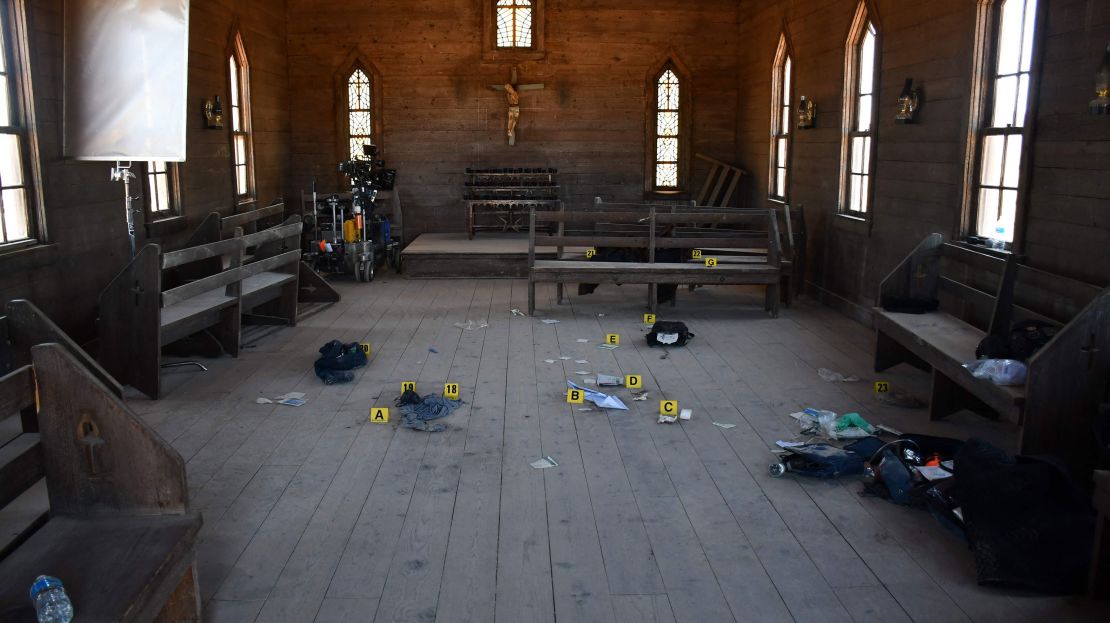
At 1:48 p.m., the crew reported the shooting to emergency responders. Hutchins was transported by air helicopter to the hospital and was pronounced dead at 3:37 p.m.
Souza was treated at the hospital, and a projectile from a live round was removed from his back.
Sheriff’s deputies arrived to the scene and began investigating the series of events leading to the shooting.
October 22, 2021: Baldwin released a statement calling the death a “tragic accident” and said he is fully cooperating with the police investigation.
December 2, 2021: In an interview with ABC, Baldwin said he cocked the gun and let go of the hammer, and the gun then fired. He said he was aiming the gun just to the side of the camera toward Hutchins, as she instructed him to do.
“I would never point a gun at anyone and then pull the trigger, never,” he said.
The investigations
August 14, 2022: FBI testing of the firearm found it could not be fired without pulling the trigger while the gun was cocked, according to a forensics report. The report noted the gun eventually malfunctioned during FBI testing after internal parts fractured, causing the gun to go off in the cocked position without pulling the trigger.
August 20, 2022: In an interview with CNN, Baldwin?placed responsibility?for Hutchins’ death on Gutierrez Reed, the film armorer and props assistant, and on assistant director Halls, who handed him the gun.
October 5, 2022: The family of Hutchins and Baldwin reached an undisclosed settlement in a wrongful death lawsuit filed against the actor and others. As part of the settlement, Matthew Hutchins, the cinematographer’s widower, was named an executive producer on “Rust.”
January 19, 2023: Prosecutors announced Baldwin and Gutierrez Reed will be charged with involuntary manslaughter in Hutchins’ death.
Halls, the assistant director, agreed to plead no contest to negligent use of a deadly weapon, the district attorney’s office announced. The terms of that deal include six months of probation?and a suspended sentence, prosecutors said.
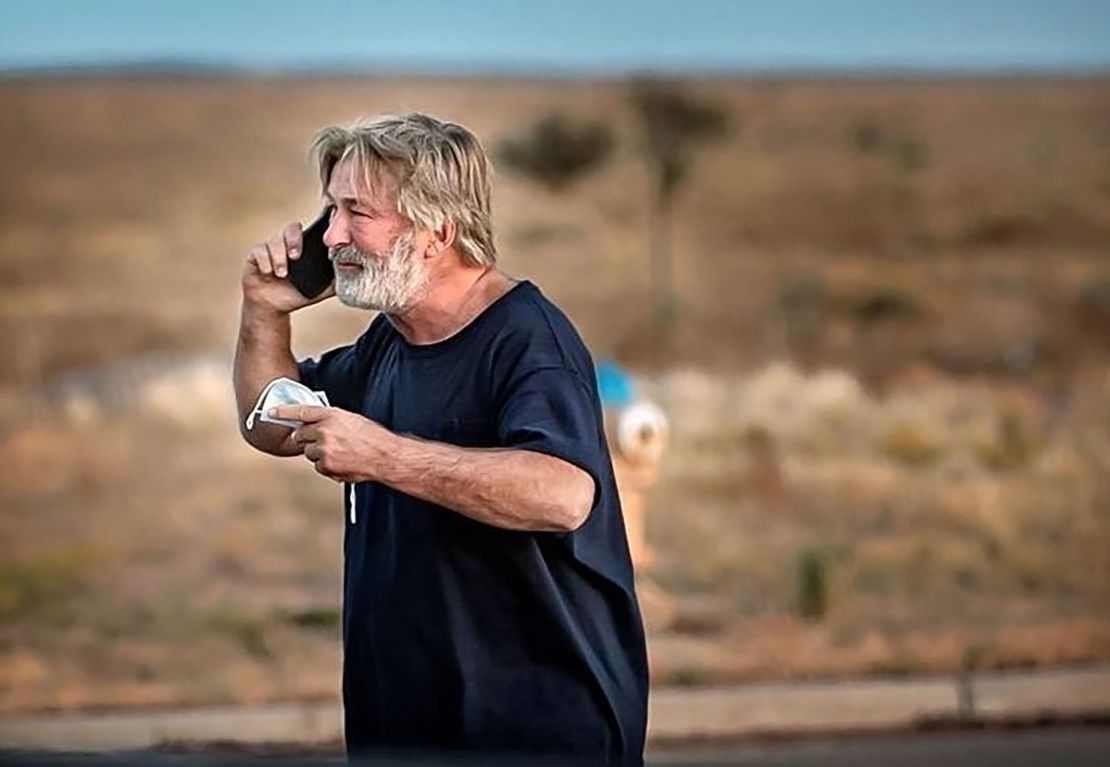
January 31, 2023: Baldwin and Gutierrez Reed were formally charged with involuntary manslaughter.
February 23, 2023: Baldwin pleaded not guilty to manslaughter charges and was released on personal recognizance.
April 20, 2023: New Mexico special prosecutors dismissed the charges against Baldwin, citing “new facts” in the case. “This decision does not absolve Mr. Baldwin of criminal culpability and charges may be refiled,” they said.
August 9, 2023: Gutierrez Reed pleaded not guilty to involuntary manslaughter and tampering with evidence.
January 19: Baldwin was indicted by a grand jury on charges of involuntary manslaughter.
January 31: Baldwin pleaded not guilty to involuntary manslaughter charges for the second time.
The trials
February 22: The trial of film armorer Gutierrez Reed began.
Prosecutors alleged her failures allowed six live bullets to make their way on set, and she did not make vital safety checks that would have caught the problem. Her defense blamed Baldwin for failing to follow common-sense gun safety rules and on the film’s production team for creating a chaotic and unsafe environment.
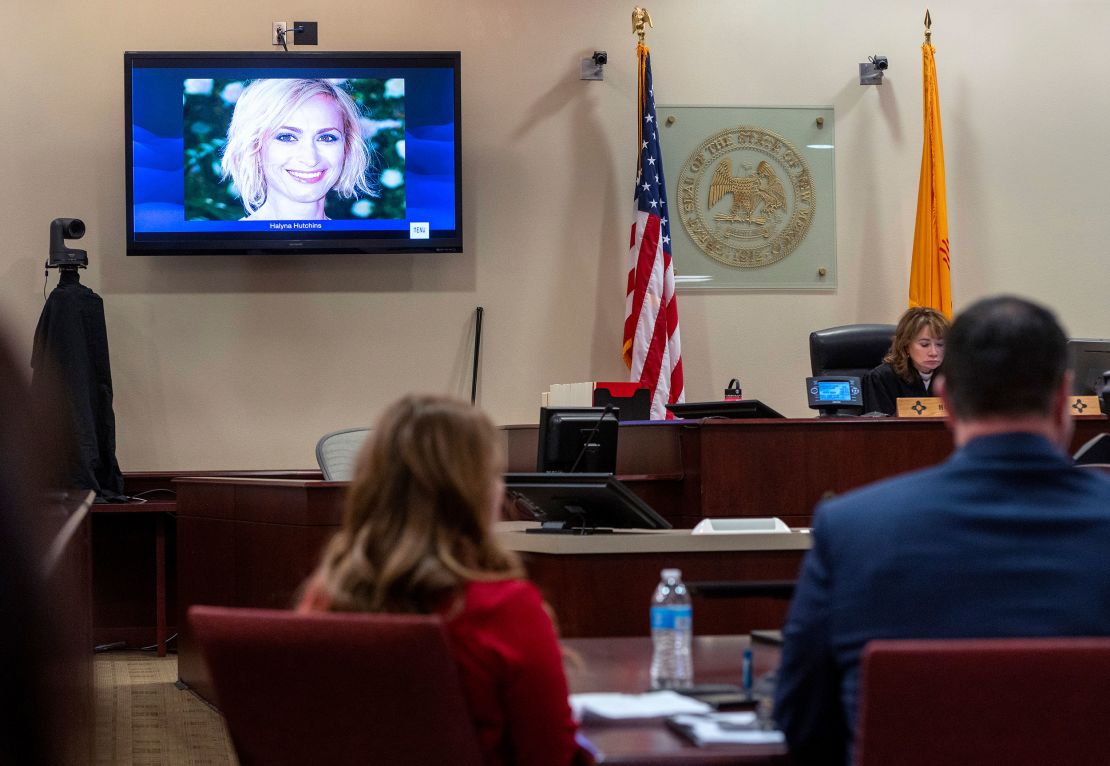
March 1: Souza, the director and screenwriter, testified about the moment he was shot on set while standing behind Hutchins.
March 6: Gutierrez Reed was found guilty of involuntary manslaughter after jurors deliberated for nearly three hours. She was acquitted of a charge of evidence tampering.
April 15: At her sentencing hearing, Gutierrez Reed said, “My heart aches” for Hutchins’ family and friends, and she asked the judge to sentence her to probation.
The judge criticized her statement and sentenced her to a maximum of 18 months in prison, saying, “You alone turned a safe weapon into a lethal weapon.”
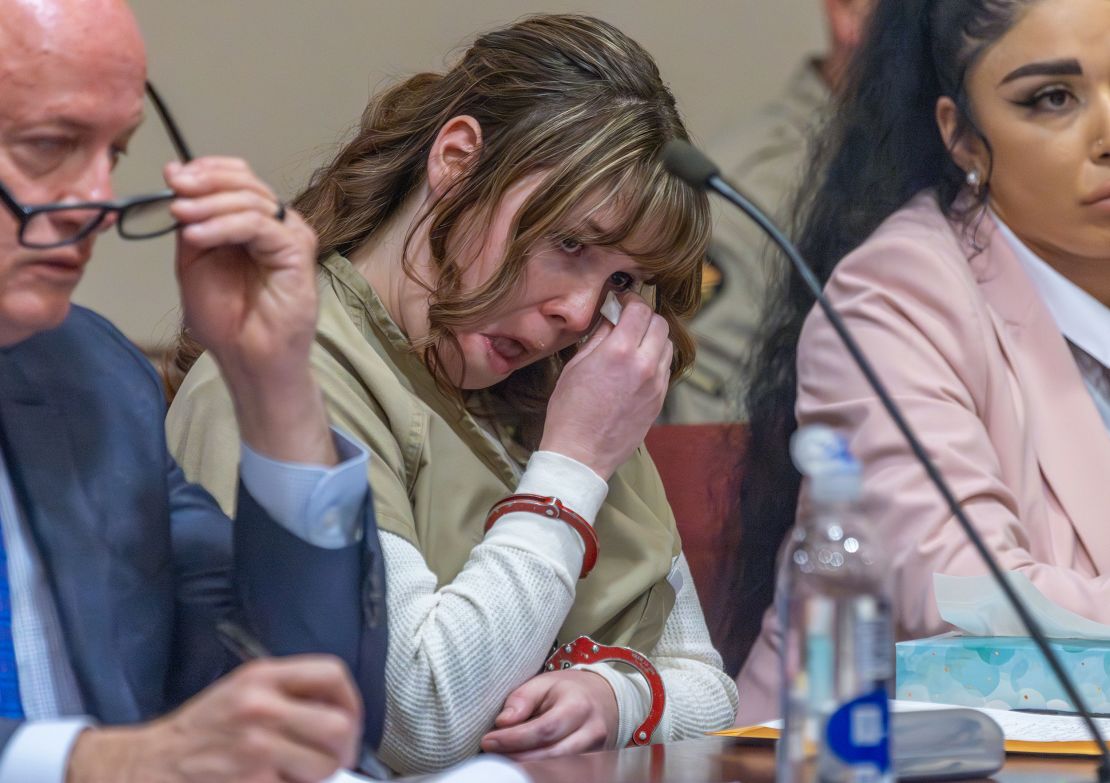
May 24: A New Mexico judge denied Baldwin’s motion to dismiss the involuntary manslaughter indictment. Baldwin’s attorneys had accused prosecutors of misconduct during the grand jury process.
June 3: New Mexico prosecutors asked the court to grant use immunity to Gutierrez Reed and compel her to testify at Baldwin’s trial, according to court documents. Gutierrez Reed invoked her Fifth Amendment right to silence in a pre-trial interview, and prosecutors said if she is not granted immunity then she would not be able to testify in the trial.
Gutierrez Reed’s attorney, Jason Bowles, told CNN he will oppose the motion.
June 17: Prosecutors signaled their intention to portray Baldwin as repeatedly flouting safety protocols on the movie set in the days before the fatal shooting, according to?a court filing.
June 21: Judge Mary Marlowe Sommer denied a defense motion asking the court to dismiss the involuntary manslaughter indictment. The defense had argued the shooting death was an accident and Baldwin was “not criminally liable,” but the prosecution countered Baldwin was experienced in the movie business and knew he was handling a real gun.
The judge also denied the prosecution’s motion to grant use immunity to Gutierrez Reed to compel her to testify at Baldwin’s trial.
June 28: The court denied a motion to dismiss the charges related to the gun that was damaged during forensic testing.
Separately, attorneys for Gutierrez Reed in a court filing on June 27 accused prosecutors of withholding evidence that would have favored the defendant during her manslaughter trial and requested she be released from prison,?Reuters?reported. According to the filing obtained by Reuters, prosecutors had a report from their own weapons experts that the gun used on set had “unexplained toolmarks on critical surfaces of the trigger and sear.”
July 3: Judge Sommer denied two motions filed by Baldwin’s legal team alleging prosecutors had improperly handled evidence, paving the way for Baldwin’s trial to start.
July 8: The judge ruled Baldwin’s role as a producer on the film “Rust” would not be considered at trial. The prosecution had sought to show Baldwin had more responsibility and influence on the set than just as an actor, but the judge said the evidence was prejudicial and confusing to the jury.
July 9: Twelve jurors and four alternates were empaneled in Santa Fe for Baldwin’s trial.
July 10: The trial of Baldwin on a charge of involuntary manslaughter began with opening statements.
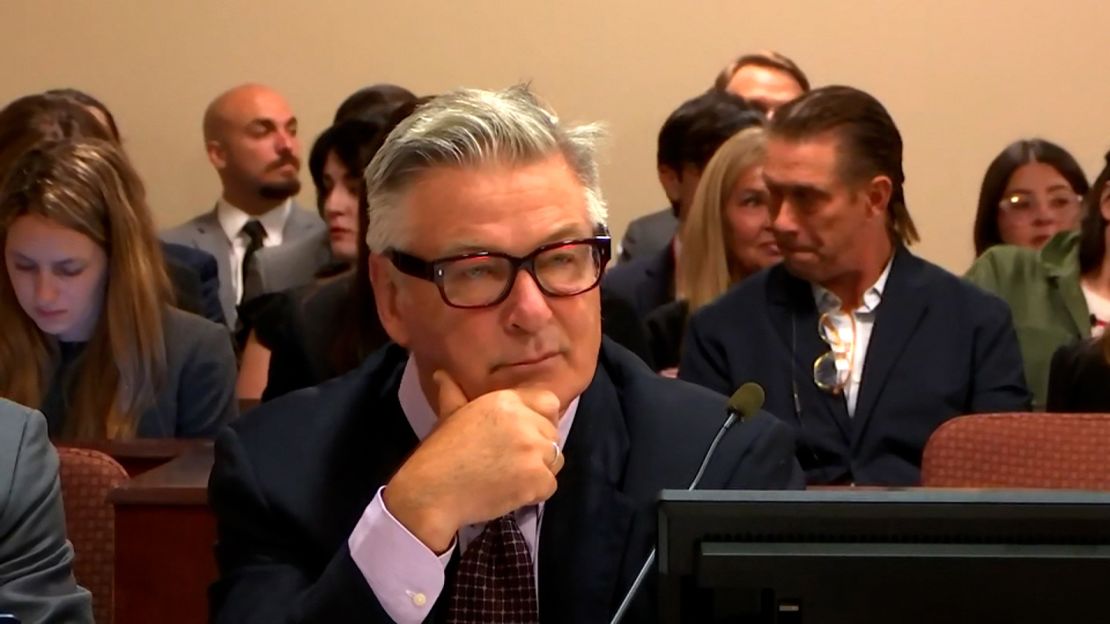
Prosecutors alleged Baldwin was reckless with firearms on set and violated the “cardinal rules of firearm safety.” “He pointed the gun at another human being, cocked the hammer and pulled that trigger, in reckless disregard for Ms. Hutchins’ safety,” prosecutor Erlinda Johnson said.
The defense blamed the film’s armorer and the first assistant director for allowing a live round to be loaded into the prop gun. “This was an unspeakable tragedy, but Alec Baldwin committed no crime. He was an actor, acting, playing the role of Harlan Rust. An actor playing a character can do things that are lethal,” attorney Alex Spiro said. “These ‘cardinal rules’ are not cardinal rules on a movie set.”
July 12: The involuntary manslaughter case against Baldwin was dismissed in dramatic fashion after the judge overseeing the case ruled prosecutors did not properly turn over evidence to the defense.
Sommer sided with the defense and dismissed the case with prejudice, meaning it cannot be brought again.
“The state’s discovery violation has injected a needless, incurable delay into the jury trial,” she said. “Dismissal with prejudice is warranted to ensure the integrity of the judicial system and the efficient administration of justice. Your motion to dismiss with prejudice is granted.”
CNN’s Ray Sanchez, Faith Karimi and Josh Campbell contributed to this report.

